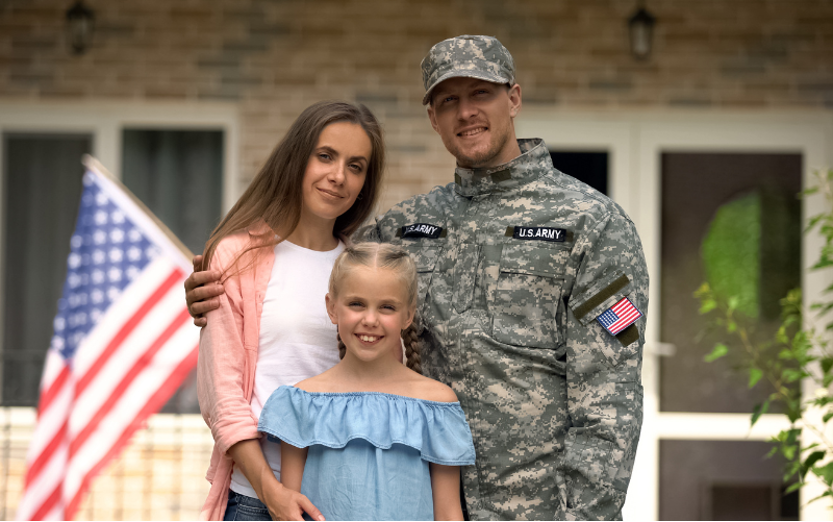
How To Keep a Healthy Lifestyle as a US Army Veteran
Maintaining a healthy lifestyle is crucial for everyone, but for US Army veterans, it holds even more significance. After years of dedicated service, veterans face unique challenges, like recurring mental and substance issues, while they transition back to civilian life. These challenges can affect physical health, mental well-being, and overall quality of life. This guide explores practical steps and strategies that US Army veterans can adopt to ensure a healthy and fulfilling lifestyle post-service.
Understanding the Challenges
The transition from military to civilian life often brings a significant shift in daily routines and responsibilities. Veterans may encounter various challenges, including:
- Physical Health Issues:
- Injuries sustained during service.
- Chronic pain or conditions related to physical exertion and stress.
- Mental Health Concerns:
- Post-Traumatic Stress Disorder (PTSD).
- Anxiety and depression.
- Adjustment disorders.
- Social and Emotional Adjustments:
- Finding a new sense of purpose.
- Building new social networks.
- Coping with changes in family dynamics.
Maintaining Physical Health
Staying physically active and maintaining good health is vital for veterans. Here are some steps to consider:
- Regular Exercise:
- Engage in physical activities that you enjoy, such as walking, running, swimming, or cycling.
- Strength training and flexibility exercises can help maintain muscle mass and mobility.
- Consider joining a local gym or veterans’ fitness group for added motivation and camaraderie.
- Healthy Eating:
- Adopt a balanced diet rich in fruits, vegetables, lean proteins, and whole grains.
- Avoid excessive consumption of processed foods, sugars, and unhealthy fats.
- Stay hydrated by drinking plenty of water throughout the day.
- Routine Health Check-ups:
- Schedule regular visits with your healthcare provider for check-ups and screenings.
- Stay updated with vaccinations and preventive measures.
- Address any health concerns promptly to avoid complications.
Fostering Mental Well-being
Mental health is a critical component of overall wellness. Veterans should take proactive steps to manage their mental health:
- Seek Professional Help:
- Do not hesitate to seek help from mental health professionals, such as psychologists or psychiatrists.
- The Department of Veterans Affairs (VA) offers a range of mental health services tailored to veterans’ needs.
- Engage in Mindfulness Practices:
- Practice mindfulness techniques, such as meditation, deep breathing exercises, or yoga.
- Mindfulness can help reduce stress, anxiety, and improve emotional regulation.
- Connect with Support Groups:
- Join veteran support groups or organizations that provide a platform for sharing experiences and mutual support.
- Peer support can be invaluable in navigating post-service life.
Read More: A Taste of Wellness: The Perfect Get Well Soon Fruit Hamper
Building a Supportive Social Network
A strong social network is essential for emotional support and overall well-being. Here’s how veterans can build and maintain meaningful connections:
- Reconnect with Family and Friends:
- Spend quality time with loved ones and share your experiences and challenges.
- Open communication can strengthen relationships and provide a support system.
- Join Community Groups:
- Participate in local community activities or volunteer work.
- Engaging in community service can foster a sense of purpose and connection.
- Pursue Hobbies and Interests:
- Rediscover hobbies or interests that you may have put aside during your service.
- Hobbies can provide relaxation, enjoyment, and opportunities to meet new people.
Finding Purpose and Fulfillment
After leaving the military, finding a new sense of purpose is crucial for veterans. Here are some ways to achieve this:
- Continued Education:
- Consider pursuing further education or training to enhance your skills and knowledge.
- The GI Bill and other veterans’ education benefits can help cover tuition and related expenses.
- Career Transition:
- Explore career opportunities that align with your skills, interests, and values.
- The VA and various organizations offer career counseling and job placement services for veterans.
- Volunteer Work:
- Volunteering for causes you care about can provide a sense of fulfillment and community involvement.
- Many organizations actively seek veterans for their leadership and dedication.
Addressing Substance Use
Substance use can be a coping mechanism for some veterans dealing with physical or emotional pain. It’s important to address these issues constructively:
- Recognize the Signs:
- Be aware of the signs of substance misuse, including increased tolerance, withdrawal symptoms, and neglect of responsibilities.
- Seek Help:
- Reach out to healthcare providers, support groups, or rehabilitation programs if you struggle with substance use.
- The VA offers specialized programs to help veterans overcome substance use disorders.
- Healthy Coping Mechanisms:
- Develop healthy coping strategies for stress and pain, such as exercise, hobbies, or therapy.
- Avoid relying on alcohol, drugs, or other substances to manage emotions.
Creating a Balanced Lifestyle
Balance is key to maintaining a healthy lifestyle. Here are some tips to achieve a balanced life:
- Set Realistic Goals:
- Set achievable goals for your physical health, mental well-being, and personal growth.
- Break larger goals into smaller, manageable steps.
- Establish a Routine:
- Create a daily routine that includes time for exercise, relaxation, social activities, and personal interests.
- A structured routine can provide stability and a sense of purpose.
- Practice Self-Care:
- Prioritize self-care activities that promote relaxation and well-being, such as reading, taking baths, or spending time in nature.
- Listen to your body and mind, and take breaks when needed.
Utilizing VA Resources
The Department of Veterans Affairs (VA) offers a wealth of resources to support veterans in maintaining a healthy lifestyle:
- Healthcare Services:
- Access comprehensive healthcare services, including primary care, specialty care, and mental health services.
- Take advantage of telehealth options for convenient access to care.
- Support Programs:
- Utilize VA support programs, such as the Veterans Crisis Line, Vet Centers, and the Caregiver Support Program.
- These programs provide emotional support, counseling, and resources for veterans and their families.
- Educational and Career Assistance:
- Explore educational benefits, vocational training, and career counseling services offered by the VA.
- These resources can help veterans transition to new careers and achieve their educational goals.
Conclusion
Maintaining a healthy lifestyle as a US Army veteran involves addressing physical health, mental well-being, social connections, and finding purpose. By taking proactive steps and utilizing available resources, veterans can navigate the challenges of post-service life and achieve a fulfilling and balanced lifestyle. Remember, seeking support and staying connected with fellow veterans and loved ones can make a significant difference in this journey. Embrace the opportunities for growth and well-being, and honor the dedication and resilience that characterized your service.


